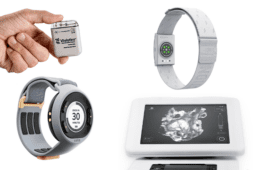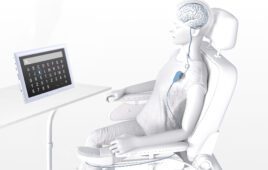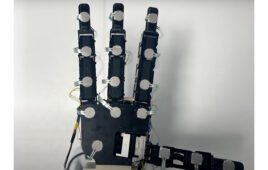Case Western Reserve University will open a new center designed to develop evaluation technology and set standards for testing and improving engineered cartilage that could one day replace a variety of prosthetic devices.
Biology Professor Arnold Caplan and colleagues have received a 5-year, $6.7 million grant from the National Institute of Biomedical Imaging and Bioengineering to open and direct the Center for Multimodal Evaluation of Engineered Cartilage.
“The grant supports a research center developing state-of-the-art technology to be used by experimentalists from all over the world,” Caplan said.
Researchers from across the United States and as far as Europe and Asia who have committed to both contribute to and use the center will meet at Case Western Reserve Monday, May 23. They will review current technologies and discuss areas to improve. Their first target is knee cartilage.
“Your long-term goals for the center are both remarkable and far-reaching,” President Barbara R. Snyder told the scientists gathered Monday morning. “… We are proud to host this center and are grateful to Professor Caplan for his leadership in its development.”
Engineered cartilage can be made with a patient’s own adult stem cells, cartilage cells taken from a patient’s knee or, as researchers in Switzerland recently showed, by growing and manipulating cells removed from the nasal septum and implanted in cartilage defects in the knee.
“But no one has been successful yet in providing a hunk of cartilage that can be implanted in someone’s knee or hip, integrate into the joint and function,” Caplan said. “Our objective is to non-destructively interrogate cartilage that’s forming and being put together outside the body to determine when it’s of sufficient quality to put inside the body.”
The long-term goal is to make engineered cartilage a viable option for patients who suffer cartilage damage or loss in the knee, shoulder and other joints, and apply what’s learned to engineer other tissues. But for that to happen, the variability caused by using human cells in the process and the unpredictable quality that results must be strictly controlled.
The process of making and comprehensively assessing engineered cartilage is complex. Experts from a breadth of fields, including molecular and cell biology; biomedical, chemical, mechanical and electrical engineering; advanced imaging and computer modeling are involved in the new center.
The center will serve as a resource where academic and industrial labs may access information and receive assistance in planning and methods, and use specialized facilities. It will also disseminate its findings and provide training. To ensure the work is shared with a similar center housed at Tufts University, its director, David Kaplan, also chairs the advisory committee of the center based at Case Western Reserve.
To develop and employ non-destructive/non-invasive tools to continuously monitor and assess implantable cartilage through each step of the engineering process and the final product itself, center members will:
- Develop imaging methods, focusing on microRNA that regulates and maintains cell differentiation, to track the state of the cartilage tissue through the process.
- Use modified cells as probes, develop methods to analyze cell differentiation, and develop tools to predict the extracellular matrix composition—which influences cell differentiation and cartilage properties—based on matrix remodeling during tissue growth.
- Develop technologies to evaluate the biochemical environment, which plays a major role in the successful or unsuccessful conversion of stem cells into cartilage and reproduction and growth of cartilage cells.
- Develop technologies to evaluate the mechanical properties of engineered cartilage, to determine whether the tissue can withstand the pressures and maintain a surface that enables bone to slide smoothly within a joint.
Joining Caplan as principals at the center are: Jean Welter, Diego Correa and Rodrigo Somoza from the Department of Biology; Harihara Baskaran and Joseph Mansour from Case School of Engineering; and Alex Huang, Ahmad Khalil, Zhenghong Lee and Mark Schluchter from the Case Western Reserve School of Medicine.




